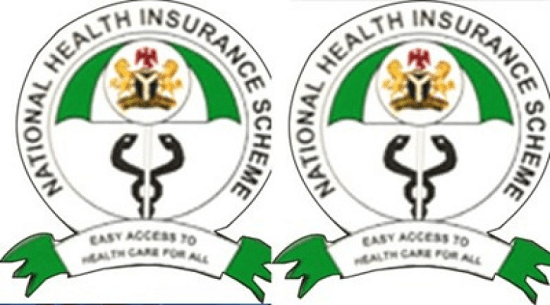No fewer than 23 Health Management Organisations, (HMOs) have been sacked from Nigeria’s Health Insurance Scheme, NHIS.
The decision was reached after a validity test carried out on all 57 HMOS operating under the scheme.
According to the newly inaugurated governing council of the scheme, the Health Management Organisations, HMOs were delisted because they failed to meet up with the minimum operational standard expected of them.
“Only one out of the 57 HMOs actually scored 100 per cent and is therefore granted accreditation to operate,” Enyanatu Ifenne, chairperson of the board said at a press briefing Thursday in Abuja.

The Executive Secretary of the scheme, Usman Yusuf, alongside members of the board were present at the briefing.
Ms Ifenne noted that 34 HMOs were granted provisional accreditation until they are able to fulfill all the conditions for the reaccreditation process, while 23 were denied reaccreditation as they failed to meet the minimum standard.
She said all HMOs operating in the scheme are expected to renew their accreditation every two years, while some of them had their accreditation last since 2013.
The board chairperson explained that Decree 35 of the scheme gives the council the power to re-accredit Health Management Organisations, HMOs and lays out clearly the condition and processes through the operations and guideline that were drawn down by the Act.
Decrying the low coverage of the scheme since inception, Ms Ifenne, a padaetrician stated that the scheme has mapped out plans on how to expand enrollee coverage by 10 per cent annually.
“We have a plan go expand coverage of the scheme at least by 10 per cent every year. We can do better but that’s the modest goal.
“We can achieve that by providing support to states to enable their own law and establish their own front. We have a lot (of) social capital in the non-formal sector that we have to activate. We are targeting universities, NYSC members, less-privileged, pregnant women and children. We are worried that countries like Ghana and Rwanda are doing much better.
“The fact that health facilities are reluctant to accept NHIS enrollees is an indictment on NHIS as public entity because what we see with this reaccreditation is accumulation of regulatory failure. Accreditation should not be the only time we know that the company is bankrupt or nonexistent or sold to (a) South African entity. If we were up and doing and on our toes in applying the regulatory powers giving us under the law, this should not happen.”
She said the current value chain the scheme operates ”which puts the NHIS at the top, the HMOs, the healthcare providers at the centre and the enrollee at the bottom is wrong.”
“Elephants have been fighting, the grass gets hurt. The grass here is the people we call enrollee. I hate that word. Enrollee just makes it look as if they were conscripted. They have no choice but to take poor service whether they like it or not or opt out.”
She also said the board has made plans to change the current trend and put the enrollees at the top of the ladder; noting that the satisfaction of the enrollee is key to the operation of the board.
“With this shift, the healthcare providers will be held to account not only for the quality care but also for the humanity because from the information we have, most people in the scheme are treated as second rate patients. So we all, NHIS, Health Management Organisations, HMOs and healthcare providers have to work so that the enrollees is at the tip of the value chain.
“We are going to redefine the processes and focus of NHIS to stand up to its regulatory function. The failure to meet our regulatory function is the reason why this plague has being spread.”
Also speaking, a representative of the Health Management Organisations, HMOs, Lekan Onaikan, said the HMOs are willing to comply with all regulatory guidelines mapped out by NHIS.
“As far as we are concerned, this industry is meant to be strongly regulated and if a regulator regulates well, whoever that doesn’t want to comply with regulation should step aside,” he said.











